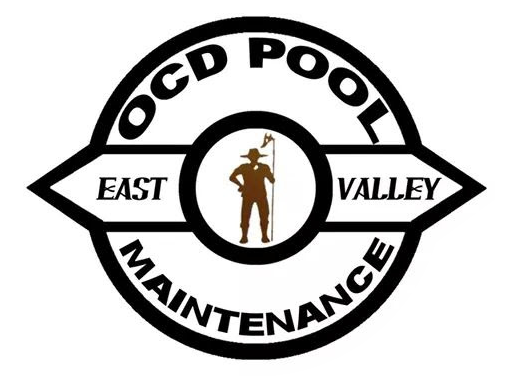Ever wondered why some pools shine while others get murky fast? The answer is regular pool upkeep. But what does it really mean?
Regular pool maintenance includes important tasks to keep the water clean and safe. These pool maintenance tasks make swimming better and your pool last longer. It’s all about balancing water chemistry and cleaning the pool regularly.
Understanding Pool Chemistry
Knowing about pool water chemistry is key to a healthy swim spot. Important parts include pH levels, chlorine balance, alkalinity, calcium hardness, and sanitizers.
Pool water pH should be between 7.2 and 7.8. This range keeps the water safe and comfy for swimmers. It also affects how well chlorine and other sanitizers work, so it’s important to check and adjust often.
Chlorine balance is crucial for keeping the water clean. It should be between 1.0 and 3.0 parts per million (ppm). Regular checks and adjustments help keep the pool safe and clean.
Total alkalinity, measured in ppm, helps keep pH levels stable. It should be between 80 and 120 ppm. This stability prevents sudden pH changes, which can harm equipment and make swimming uncomfortable.
Calcium hardness is also key. It measures calcium ions in the water. A good range is 200 to 400 ppm. This balance stops the water from being too soft or too hard, protecting equipment and plaster.
Pool sanitizers are vital for clear, clean water. They control bacteria, algae, and other bad stuff. Chlorine, bromine, and salt chlorine generators are common. Regular tests with good kits keep these balances right.
Following advice from places like the Centers for Disease Control and Prevention (CDC) and major pool chemical suppliers helps. This way, pool owners can make sure their pool is safe and fun for everyone.
Cleaning and Skimming the Pool
Keeping your pool clean is key to a great swimming experience. Start by skimming debris from the surface daily or weekly. Use a skimmer net to remove leaves, insects, and other particles. This keeps your pool looking good and working well.
Next, vacuuming pool floors and surfaces is crucial. It removes dirt, sand, and small particles from the bottom. An automatic pool cleaner can make this job easier and cleaner.
Brushing pool walls and floor regularly is also important. It stops algae and prevents stains. Brushing keeps your pool looking clean and inviting.
Doing these cleaning tasks regularly means you need to use fewer chemicals. This is better for your health and the environment. Pool experts and manufacturers stress the importance of these steps in their advice.
Inspecting and Maintaining Pool Equipment
Checking and keeping pool equipment in good shape is key. Regular pool equipment maintenance helps your pool system last longer and work better. Start by inspecting pool pumps for leaks or odd sounds. Fixing problems early can save you from expensive repairs and downtime.
Pool filter upkeep is also crucial. Clean or replace filters often to keep water clear and clean. Skipping this can make water quality drop and increase costs.
Don’t forget to do a pool heater checkup regularly. A working heater means no sudden failures and a longer life for your equipment. Always follow the manufacturer’s maintenance advice for the best results.
Many pool equipment makers, like Hayward and Pentair, give detailed maintenance guides. Using these tips, along with advice from pool experts, helps keep your equipment in top shape. Regular checks and upkeep save you time and money over time.
Weekly and Monthly Pool Maintenance Tasks
Taking care of your pool can feel overwhelming. But, breaking it down into smaller tasks makes it easier. A good pool maintenance schedule mixes weekly and monthly tasks to keep your pool clean and safe.
- Weekly Pool Maintenance:
- Check and adjust the water’s pH and chlorine levels.
- Remove leaves and debris from the surface.
- Brush the walls and steps to stop algae.
- Empty the skimmer and pump baskets for better flow.
- Look at the filter pressure and clean or backwash it if needed.
- Monthly Pool Checks:
- Do a detailed check of your pool equipment.
- Apply lubricant to o-rings to avoid damage.
- Backwash filters to keep them working well.
- Test for minerals and treat if needed.
Following a pool maintenance schedule helps catch problems early. This saves you from bigger, more costly issues later. Many pool service companies also provide tips and advice. They help you create a maintenance plan that fits your pool’s specific needs.
Conclusion
Keeping your pool in good shape is key to making it last longer and more enjoyable. By sticking to a regular maintenance plan and knowing your pool’s chemistry, you can stop problems before they start. Tasks like cleaning, skimming, and checking equipment are crucial for keeping your pool in top condition.
Following a good pool owner guide helps make sure you don’t miss any important steps. Experts and seasoned pool owners agree that being consistent in maintenance is vital. This way, you get clear, clean water for a great swimming experience all season.
By following these steps, you can enjoy your pool without any worries. The work you put into maintaining your pool protects your investment and keeps it a fun place for everyone. It’s a space where family and friends can have a great time all summer.



